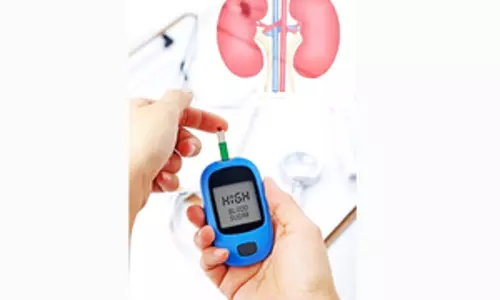Kidney Disease and Diabetes Linked to Heart Disease Risk Decades Earlier: Study

New Delhi: A recent simulation study by Northwestern University researchers reveals that individuals with chronic kidney disease (CKD), Type 2 diabetes, or a combination of both face an elevated risk of cardiovascular disease (CVD) much earlier than those without these conditions—by as much as 28 years in some cases. According to the preliminary findings, people with CKD, diabetes, or both may experience heightened CVD risk anywhere from 8 to 28 years sooner than individuals without these conditions.
The research, led by Vaishnavi Krishnan, a researcher at Northwestern University in Chicago, focused on the broader cardiovascular-kidney-metabolic (CKM) syndrome, which encompasses interconnected conditions affecting cardiovascular, kidney, and metabolic health. The team used simulation models to assess how CKM syndrome components accelerate the onset of cardiovascular risk.
The study highlights significant differences based on specific conditions. For individuals with CKD alone, the risk for cardiovascular disease was predicted to emerge approximately eight years earlier than for those without CKD. In people diagnosed with Type 2 diabetes, the risk showed up roughly a decade earlier. However, individuals with both CKD and diabetes faced the most significant impact. The researchers found that, on average, women with both conditions reached high CVD risk 26 years earlier, while men reached the same risk level 28 years earlier, compared to those without either condition.
“Our findings help interpret the combined risk factors that lead to a heightened CVD risk and clarify at what age this impact becomes significant,” explained Krishnan. She pointed out that individuals with borderline high blood pressure, elevated glucose levels, or reduced kidney function may have a high CVD risk that goes unrecognized if they haven’t yet been diagnosed with hypertension, diabetes, or CKD. "Understanding how age interacts with risk factor levels is crucial to optimizing CKM health," she added.
The researchers also discovered that in the absence of CKM syndrome, the projected age for developing high cardiovascular disease risk was around 68 for women and 63 for men. With CKM components factored in, the age for reaching the same risk level dropped substantially, illustrating how metabolic, kidney, and cardiovascular conditions can jointly accelerate cardiovascular risks.
These findings will be presented at the American Heart Association’s Scientific Sessions 2024, scheduled to take place in Chicago from November 16-18. The study underscores the need for earlier screening and intervention for individuals with CKM syndrome components to mitigate cardiovascular disease risks effectively.


